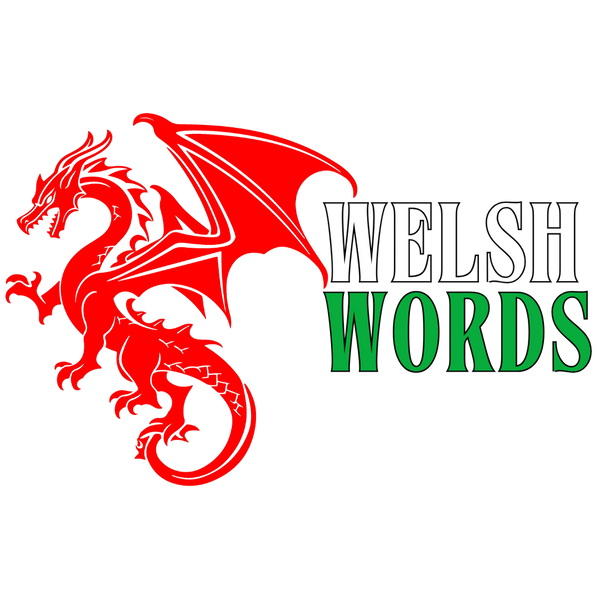
Discover Welsh Christmas Magic in Poetry!
Welsh culture is filled with captivating legends, ancient traditions, and heartwarming stories, making it a treasure trove for poetry. This Christmas season, poet Arthur Cole brings two beloved Welsh tales to life in his evocative works, Llangynwyd and Guto Nyth Brân. These poems beautifully weave folklore, history, and festive spirit, making them a perfect celebration of Wales’ unique cultural heritage.
Below, we explore the stories behind the poems and include the full text of these remarkable works for you to enjoy.
Llangynwyd: A Village of Beauty and Folklore
Arthur Cole’s poem Llangynwyd transports us to a small hilltop village in South Wales, where history, legend, and tradition come together in a breathtaking setting. At its heart lies the tragic tale of "The Maid of Cefn Ydfa," Ann Maddocks, and her forbidden love, Wil Hopcyn. This timeless tale of tragedy and betrayal is one of Wales’ saddest folk stories.

Wil Hopcyn singing one of his chosen songs at Cefn Ydfa’, from the novel by Isaac Hughes, Y Ferch o Gefn Ydfa, (Cardiff, 1881).
The poem fittingly honors the Mari Lwyd, a centuries-old Christmas wassailing tradition that has been best preserved by the villages around Llangynwyd. This unique ritual features a horse’s skull adorned with ribbons, carried door-to-door to spread festive cheer. The Mari Lwyd brings a lively energy to the season, filling the neighborhood with songs, witty exchanges, and playful antics that carry on late into the night. Its mention in the poem highlights the enduring spirit of this beloved custom in the region.

Llangynwyd
By Arthur Cole
Storm clouds gather, whilst lost souls rest,
in a village of beauty, a medieval bequest.
A solitary tree, sheds autumnal leaves,
bowing with respect, on a heavenly breeze.
A graveyard of solace, for those in despair,
quietly reflecting, whilst offering a prayer
An idyllic retreat, St Cynwyd her founder,
where a story of love, was sadly put asunder.
Steeped in folklore, a legend it became,
'The Maid of Cefn Ydfa' shrouded in fame.
Lovers deprived, Ann and Wil their names,
heartbreak and sorrow, a mother to blame.
An annual 'wassailing', symbolic and old,
a community gathering, 'The Mari Lwyd'
A horse skull on a pole, a Christmas tradition,
knocking on doors, requesting admission.
Then once inside, much havoc created,
jaw snapping antics, comedically orchestrated.
Joviality and song, going well into the night,
a ritual performed, it's now a community rite.
Steeped in mystique, a world-renowned name,
a jewel in the crown, such historical fame.
This hill top village, stands majestic and proud,
in a valley of song, myth and legend endowed.
Guto Nyth Brân: A Rhondda Valley Legend
The poem Guto Nyth Brân introduces us to Griffith Morgan, a legendary athlete from Llwyncelyn, Porth, whose incredible speed earned him a place in Welsh folklore. Arthur Cole’s verses recount Guto’s astonishing feats, including catching a hare in full flight, his triumphant races, and his tragic end during a victory celebration.
Today, Guto’s legacy is kept alive through the annual Nos Galan races held every New Year’s Eve in Mountain Ash. This festive event celebrates the memory of a man whose achievements continue to inspire awe and pride.

Guto Nyth Brân
By Arthur Cole
'Griffith Morgan, better known as Guto Nyth Brân,
was a Welsh athlete. Many of his feats became merged
with legend. Guto was born in Llwyncelyn, Porth,
and his body now rests at St Gwynno Church, in
the Llanwynno forestry.'
Griffith Morgan - aka Guto Nyth Brân
An athlete of note, a proud Rhondda son,
filled a valley with pride, Guto was second to none.
Guto’s exploits were many, now shrouded in fame,
running like the wind, a legend Guto became.
A wild hare Guto chased, caught it in full flight,
a feat that's now lauded, a wondrous sight.
Guided by Siân, for money Guto raced,
opponents outwitted, completely outpaced.
Speed was Guto's forte, having no peers,
rivals dispatched, such a stellar career.
Opponents ran scared, races diminished,
retirement beckoned, a career finished.
For the next few years, a quiet life beckoned,
Siân now his sweetheart, treasuring every second.
Then came a challenger, 'Prince' was his name,
a 1,000 guineas the prize, notoriety to claim.
Guto took up the challenge, without any fear,
twelve miles of toil, would resurrect his career.
Guto took the spoils, putting 'Prince' in his place,
much backslapping flurry, at the end of his race.
Guto's effort took its toll, his heart then gave out,
a back slap from Siân, caused death, not in doubt.
The fastest man of his time, an athlete supreme,
to take Guto’s crown, opponents, could only dream.
Each New Year's Eve, Guto's memory survives,
'The Nos Galan' races, ever keeping it alive.
The legend of Guto, will forever live on,
a Rhondda Valley hero, who was second to none.
A Festive Celebration of Wales
Arthur Cole’s poems celebrate the depth and richness of Welsh culture, shining a light on its unique stories and traditions. Through the somber beauty of Llangynwyd and the thrilling exploits of Guto Nyth Brân, Cole captures the heart of Wales, inspiring us to embrace its folklore and heritage this Christmas.
Quiz: Test your Knowledge - The Poems of Arthur Cole 📝
1. In the poem Llangynwyd, what symbol of community and tradition is highlighted during the Christmas season?- a) The Nos Galan races
- b) The Mari Lwyd
- c) The Maid of Cefn Ydfa
- d) A medieval tree
- a) Exhaustion from the race
- b) A back slap from Siân during the celebration
- c) A duel with his rival, Prince
- d) Slipping while chasing a hare
- a) Victory and fame
- b) Tragedy and forbidden love
- c) Community and celebration
- d) Athletic excellence
- a) A bustling city filled with excitement
- b) A quiet graveyard offering solace and reflection
- c) Rolling hills alive with the sound of music
- d) A seaside town brimming with festive cheer
- a) Preserved through folklore and song
- b) Celebrated in annual races on New Year’s Eve
- c) Remembered only in the Rhondda Valley
- d) Honored through tales of athletic achievement in schools
Learn more about Welsh Christmas Legends here!

